The code below returns the following output:
Semaphore sema = new Semaphore(5,5,"sema_1");
for (int i = 0; i < 10; i++)
{
ThreadPool.QueueUserWorkItem(delegate(object state)
{
sema.WaitOne();
Console.WriteLine(" = " + i);
sema.Release();
});
}
And just by adding the int j = i it completely changes the output to what I was expecting, which is the proper response reaching the limit of the Semaphore:
Semaphore sema = new Semaphore(5,5,"sema_1");
for (int i = 0; i < 10; i++)
{
int j = i;
ThreadPool.QueueUserWorkItem(delegate(object state)
{
sema.WaitOne();
Console.WriteLine(" = " + j);
sema.Release();
});
}

